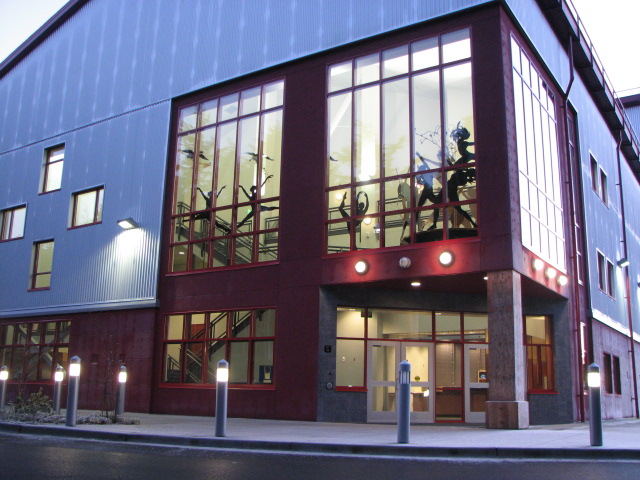
A nonprofit organization has agreed to take on a major share of running the Sitka Performing Arts Center.
The Sitka Fine Arts Camp recently signed an agreement with the Sitka School Board that should save the district over $100,000 a year in expenses.
The deal is intended to ease the district’s budget deficit, and also to take the multimillion dollar facility off the table politically.
The annual operating costs of the Sitka Performing Arts Center — or PAC, as it’s called — top out around $240,000 a year.
Part of that expense until now has included a management contract paid to the Sitka Fine Arts Camp to cover a technical director to care for the PAC’s state-of-the-art lighting and sound systems, custodial costs, and everything else associated with staging shows in the space.
The old deal was a win for both the schools and the Fine Arts Camp because the PAC is physically connected to Sitka High School, and…
“The main user of the auditorium is the school district,” said Roger Schmidt, director of the Fine Arts Camp. “Which is great. It’s what we believe in. That’s basically allowed us to provide support to the school district, and to the community groups that use the space.”
But now, under an agreement signed on April 3, the Fine Arts Camp has agreed to do everything it was previously paid to do — for free. Or, in other words, the camp is going to absorb the $112,000 costs of a technical director and custodial services.
The Fine Arts Camp is nonprofit. Schmidt says that his board does not see operating the PAC as an economic opportunity. In fact, just the opposite.
“We saw great opportunity extinguishing,” said Schmidt. “And so we felt that our mission is to provide the highest-quality arts education experiences to Alaska youth and Sitka youth and that is the mission of the PAC. So for us it’s having to prioritize a way to keep that going that means we’re going to have to adjust in our own budget priorities. At the board level I think we recognized that if we weren’t keeping the PAC open we weren’t recognizing our own mission, and the responsibility that comes with that mission.”
Part of that reprioritization within the budget is in payroll. Schmidt says the camp’s objective is to have pay and benefits commensurate with other educators and professionals in Sitka. Taking on the PAC will be a setback toward that goal, and full-time camp employees will not have an employer-sponsored health plan this year.
Or perhaps not for some time to come. At the April 3 meeting of the Sitka School Board when the management agreement was finalized, Fine Arts Camp board member Martha Pearson said that this deal was not a one-time response to the massive education cuts proposed by Gov. Dunleavy.
She said that the deal was for keeps.
“I’d also like to just mention that even if the budget situation miraculously changed and there were more funds available than we expected, this agreement and intention is still going to stay,” Pearson told the board. “We just see this as a long-term partnership that’s going to work for the City of Sitka, and for the students of Sitka.”
Schmidt says it’s time for the annual political tug-o-war over the PAC to end.
“We want the space to be off the table politically,” he said. “I think it’s incredibly hard on the music teachers at Sitka High — you know, they’re putting a lot of energy into what they’re doing. And to pretend there’s some scenario where JazzFest would move back to the gym, and all the athletic programs would be relocated. I think the idea that our kids, the message they get that somehow that’s not valued as a teaching tool. We think it’s been a false political pawn — you don’t close down gyms, we’re talking the apocalypse when that happens. I’m not seeing the apocalypse in Sitka. I’m seeing people that need to make some decisions to be more generous to kids, and towards schools.”
The final decision about the agreement rests in the hands of the Sitka Assembly, who would agree to take on the basic utility costs of the building — water, sewer, and electricity.* The school district would cover heat and insurance — expenses it would have to cover even if the building were shuttered. And the Fine Arts Camp would take the rest.
*Note: An additional expense covered by the City of Sitka (and its taxpayers) is school bond debt payments, not only for the PAC, but also for the remodels of Sitka High, Baranof Elementary, Blatchley Middle School, and the replacement of flat roofs on those buildings with sloping ones. At the time voters approved the bonds, the State of Alaska agreed to reimburse Sitka for a majority share of those bond payments, but Gov. Dunleavy has proposed ending that agreement, at an annual cost to Sitka of $2 million per year.
Note: In an earlier version of this story, Martha Pearson was misidentified as the president of the Sitka Fine Arts Camp board. She is a board member, but not an officer.






























